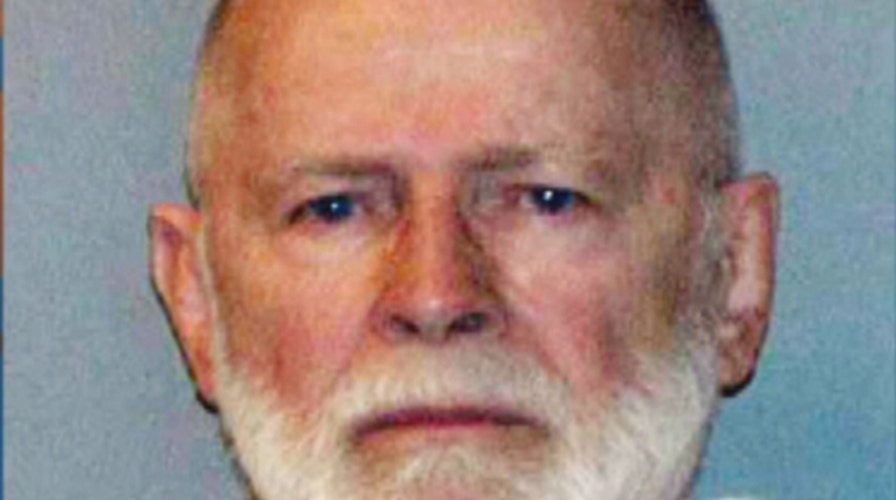Opening statements begin in Whitey Bulger murder trial
Molly Line reports from Boston, Massachusetts
A federal prosecutor said in opening statements Wednesday at James "Whitey" Bulger's racketeering trial that the reputed mobster was at the center of "murder and mayhem" in Boston for almost 30 years, while the defense attacked the credibility of the government's star witnesses.
Bulger, now 83 with a shaved head and glasses, stood up in the federal courtroom as jurors were led in. His brother, Jackie, represented the family in the front row. He is facing a trial that will likely last the entire summer and has denied charges against him.
Prosecutor Brian Kelly told jurors that Bulger headed the violent Winter Hill Gang that "ran amok" in Boston for nearly three decades, killing 19 people, extorting millions from drug dealers and other criminals, and corrupting police and FBI agents.
"At the center of all this murder and mayhem is one man -- the defendant in this case, James Bulger," Kelly said.
Bulger's lead attorney, J. W. Carney Jr., went after the prosecution's star witnesses, including hit man John Martorano, who admitted killing 20 people and has agreed to testify against Bulger.
Martorano served 12 years in prison for his crimes, in what Carney called an "extraordinary benefit" for his cooperation with prosecutors.
"The federal government was so desperate to have John Martorano testify ... they basically put their hands up in the air and said take anything you want," Carney said.
Other once-loyal Bulger cohorts who will likely testify against him include Stephen "The Rifleman" Flemmi, Bulger's former partner, and Kevin Weeks, a former Bulger lieutenant who led authorities to six bodies.
The government plans to show the jury a 700-page file they say shows that Bulger, while committing a long list of crimes, was also working as an FBI informant, providing information on the New England Mob -- his gang's main rivals -- and corrupting FBI agents who ignored his crimes.
Kelly says Bulger's gang succeeded by instilling fear in other criminals and corrupting law enforcement officials who tipped them off when they were being investigated.
"It was part of a strategy they had, and it worked for them," Kelly said.
Carney denied that Bulger ever tipped off the FBI.
"James Bulger never ever -- the evidence will show -- was an informant," Carney said.
Carney acknowledged that Bulger was involved in illegal gambling and drugs but told the jury that Bulger paid law enforcement to protect him from prosecution.
Bulger was one of the nation's most wanted fugitives when he fled Boston in 1994 after receiving a tip from his former FBI handler, John Connolly, that he was about to be indicted. He was finally captured in 2011 in Santa Monica, Calif., where he had been living with his longtime girlfriend in a rent-controlled apartment.
Connolly was convicted of racketeering for warning Bulger and later of second-degree murder for giving information to Bulger that led to the slaying of a Boston businessman in Miami.
Bulger's lawyers have indicated that they will argue that Connolly fabricated informant reports in Bulger's lengthy FBI file.
The defense may also present another side of Bulger seen by some residents of South Boston, where he was known for years as a kind of harmless tough guy who gave Thanksgiving dinners to his working-class neighbors.
Prosecutors, however, plan to call one family member of each of the 19 people prosecutors allege were killed by Bulger and his gang. Among the victims were two 26-year-old women who Bulger is accused of strangling.
Judge Denise Casper ruled earlier that reporters Howie Carr and Kevin Cullen can be called as witnesses in the trial. Bulger’s attorney argued that the reporters were not eyewitnesses and could only provide second hand accounts. Carr wrote the best selling book 'Hitman' about John Martarano, convicted of committing 20 murders, many of them allegedly at the behest of Bulger.
The Associated Press contributed to this report


